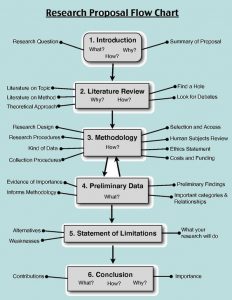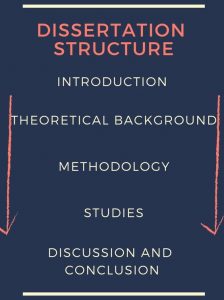The dissertation is a monumental undertaking in any academic journey. It stands as a testament to years of research and intellectual exploration. The dissertation is a culmination of your knowledge, skills, and passion, and its success can significantly impact your future career and academic standing. Navigating the intricate process of dissertation writing can be daunting. However, the right guidance and a structured approach can enable you to confidently embark on this journey and emerge with a masterpiece.
This comprehensive guide offers a detailed road-map for dissertation writing success, covering every stage from topic selection to submission.
What is a Dissertation?
The term "dissertation" often evokes a sense of dread in the hearts of graduate students. It is a formidable word, a weighty symbol of academic rigor and intellectual achievement. But what exactly is a dissertation, and why is dissertation writing such a crucial milestone in the academic journey?

Simply put, a dissertation is a long, original piece of research that culminates a student's graduate studies. It's a comprehensive exploration of a specific topic within a chosen field, showcasing the student's ability to conduct independent research, analyze data, and present their findings in a scholarly manner.
A dissertation goes beyond a simple research paper. It's a unique contribution to the field of study, pushing the boundaries of knowledge and offering new insights or perspectives. That is why most students opt for
professional dissertation writing help to generate top notch quality papers.
The Purpose of a Dissertation:
- Demonstrate mastery: A dissertation proves a student's deep understanding of their chosen field and their ability to synthesize complex information.
- Contribute to scholarship: It adds to the body of knowledge within a specific discipline, potentially influencing future research and practice.
- Develop research skills: The process of conducting research, analyzing data, and writing a dissertation hones the student's critical thinking, analytical, and writing abilities.
- Prepare for a future career: It equips students with the skills and knowledge needed for success in academic, research, or professional roles.
The Dissertation Journey:
Writing a dissertation is a long and challenging journey, often spanning several years. It involves:
- Identifying a research topic: Choosing a relevant and manageable area of inquiry within the student's field.
- Conducting thorough research: Gathering and analyzing data using various methodologies.
- Writing and revising: Crafting a well-structured and compelling narrative that presents the research findings and their implications.
- Defending the dissertation: Presenting the research to a committee of experts and answering their questions.
The dissertation is a significant accomplishment, signifying the culmination of years of dedicated effort and intellectual growth.
The Process of Dissertation Writing: A Step-by-Step Guide
- Choosing the Right Topic: The Foundation of Your Dissertation
The topic you choose for your dissertation is the bedrock of your entire project. A well-chosen topic will ignite your interest, offer ample research material, and align with your academic goals. Here's a guide to selecting the perfect topic:
- Passion and Interest: Your dissertation should be a labor of love. Choose a topic that genuinely intrigues and excites you. This passion will sustain your motivation through long research hours and writing sessions.
- Relevance and Impact: Ensure your topic is relevant to your field of study and has the potential to contribute meaningfully to existing knowledge.
- Feasibility and Scope: Consider the time and resources available to you. Choose a topic that is manageable within the given timeframe and scope of your dissertation.
- Availability of Resources: Research extensively to assess the availability of sufficient primary and secondary resources to support your chosen topic.
- Consultation with Supervisors: Discuss your potential topics with your advisors and mentors. Their guidance can refine your ideas and ensure your research aligns with departmental expectations.
- Crafting a Compelling Research Proposal: A Roadmap for Success
A well-written research proposal is crucial for securing funding, gaining approval from your committee, and outlining your research plan. It should clearly articulate your research question, methodology, expected outcomes, and the significance of your project.
 Key Components of a Strong Research Proposal:
Key Components of a Strong Research Proposal:
- Introduction: Introduce your research topic, its relevance, and its potential contribution to the field.
- Literature Review: Provide a comprehensive overview of existing research on your topic, identifying gaps and highlighting the need for your study.
- Research Questions and Objectives: Formulate clear, focused research questions and objectives that guide your research.
- Methodology: Explain your research design, including data collection methods, participants (if applicable), and data analysis techniques.
- Timeline: Present a realistic timeline for each stage of your research, ensuring completion within the allocated time.
- Expected Outcomes: Clearly articulate the potential outcomes and contributions of your research.
- Significance and Impact: Explain the broader implications of your research and its potential impact on your field.
- Engaging in Rigorous Research: The Heart of Your Dissertation
The research phase is the most demanding and rewarding part of dissertation writing. It involves collecting, analyzing, and interpreting data to answer your research questions.
Tips for Effective Research:
- Develop a Systematic Approach: Create a detailed research plan, including timelines, resources, and data collection strategies.
- Explore Diverse Resources: Utilize both primary and secondary sources, including academic journals, books, reports, interviews, surveys, and archival data.
- Critical Evaluation: Assess the credibility and reliability of your sources, ensuring they align with academic standards.
- Maintain Accurate Records: Document all research activities, including data sources, methodologies, and analytical techniques.
- Seek Guidance from Experts: Consult with your supervisors, mentors, and peers for feedback and support during the research process.
- Crafting a Compelling Narrative: Structuring Your Dissertation
The structure of your dissertation should logically organize your research findings and present a compelling narrative that answers your research questions.
 Standard Dissertation Structure:
Standard Dissertation Structure:
- Introduction: Briefly introduce your topic, its significance, and your research questions.
- Literature Review: Summarize and analyze existing research related to your topic, highlighting gaps and justifying your research.
- Methodology: Describe your research design, data collection methods, participants (if applicable), and data analysis techniques.
- Results: Present your research findings in a clear and concise manner, using tables, figures, and charts for visualization.
- Discussion: Interpret your findings, connecting them to existing literature and addressing your research questions.
- Conclusion: Summarize your findings, highlight their significance, and discuss their implications for future research.
- References: Provide a comprehensive list of all cited sources in accordance with academic formatting guidelines.
- Appendices: Include any supplementary materials, such as data tables, questionnaires, or interview transcripts.
- Writing Effectively: From Outlines to Polished Chapters
Dissertation writing requires a systematic approach, focusing on clarity, coherence, and academic rigor.
Tips for Effective Dissertation Writing:
- Start with a Clear Outline: Organize your thoughts and research findings into a logical structure, using subheadings and bullet points to guide your writing.
- Write Regularly and Consistently: Set aside dedicated time for writing and aim for consistent progress, even if it's just for a short period each day.
- Focus on One Chapter at a Time: Break down the writing process into manageable chunks, focusing on completing one chapter before moving on to the next.
- Seek Feedback from Others: Share your drafts with your supervisors, mentors, and peers to receive constructive criticism and suggestions.
- Proofread and Edit Thoroughly: After completing each chapter, proofread carefully for grammar, spelling, and style errors.
- Submitting Your Dissertation: The Final Stage of Your Journey
Submitting your dissertation marks the culmination of your hard work and dedication. It is crucial to ensure that your final submission meets all the required formatting guidelines and academic standards.
Final Submission Checklist:
- Formatting and Style: Ensure your dissertation follows the specified formatting guidelines, including font type, margins, spacing, and citation style.
- Academic Rigor: Review your work thoroughly for clarity, coherence, and academic integrity, ensuring that all claims are supported by evidence.
- Plagiarism Prevention: Utilize plagiarism detection software and ensure all sources are properly cited and acknowledged.
- Final Proofreading: Carefully proofread your entire dissertation for any remaining errors or inconsistencies.
- Submission Deadline: Submit your dissertation well before the deadline, allowing time for any unforeseen delays.
- Beyond Submission: The Legacy of Your Dissertation
The completion of your dissertation is a significant milestone, marking the end of a chapter and the beginning of new possibilities. However, your work doesn't end with submission.
Disseminating Your Research
- Academic Publications: Consider submitting your research findings to peer-reviewed journals in your field.
- Presentations and Conferences: Share your research at conferences and workshops to engage with other scholars and gain valuable feedback.
- Networking and Collaboration: Connect with other researchers in your field to explore potential collaborations and future research opportunities.
Dissertation writing is a transformative journey, demanding rigorous research, meticulous writing, and unwavering dedication. However, the rewards are significant, offering the opportunity to contribute meaningfully to your field, expand your knowledge and skills, and enhance your academic standing.
By embracing a structured approach, focusing on quality, seeking guidance from mentors and peers, and maintaining a positive attitude, you can successfully navigate this challenging yet rewarding process and emerge with a dissertation that reflects your intellectual prowess and scholarly excellence.
Get Professional Dissertation Writing Services
Academiascholars.com is the pinnacle of academic paper writing services. We offer professional dissertation writing services for a wide range of courses including nursing, hospitality, engineering, finance, law, marketing and psychology. Place an order or visit our
blog for premium academic papers to boost your grades.
 Simply put, a dissertation is a long, original piece of research that culminates a student's graduate studies. It's a comprehensive exploration of a specific topic within a chosen field, showcasing the student's ability to conduct independent research, analyze data, and present their findings in a scholarly manner.
A dissertation goes beyond a simple research paper. It's a unique contribution to the field of study, pushing the boundaries of knowledge and offering new insights or perspectives. That is why most students opt for professional dissertation writing help to generate top notch quality papers.
The Purpose of a Dissertation:
Simply put, a dissertation is a long, original piece of research that culminates a student's graduate studies. It's a comprehensive exploration of a specific topic within a chosen field, showcasing the student's ability to conduct independent research, analyze data, and present their findings in a scholarly manner.
A dissertation goes beyond a simple research paper. It's a unique contribution to the field of study, pushing the boundaries of knowledge and offering new insights or perspectives. That is why most students opt for professional dissertation writing help to generate top notch quality papers.
The Purpose of a Dissertation:
 Key Components of a Strong Research Proposal:
Key Components of a Strong Research Proposal:
 Standard Dissertation Structure:
Standard Dissertation Structure: